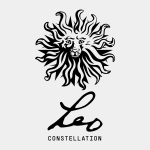It’s not about us. It’s about our clients
Last week the world received shocking news that the world’s largest advertising agency network WPP took a massive hit from the impact of digital disruption. As WPP’s shares plunged almost 13%, the industry came face to face with the painful reality of digital disruption.
MARKETING magazine sat down with Nicolas Menat, CEO of Publicis One Asia and Gareth Mulryan, CEO of Publicis Media South East Asia to talk about how Publicis One is staying in a world of unpredictability…

“When we made the change a couple of years ago as a group, we stuck on three very clear tenets. These three tenets come straight from the top, which are trust, talent and transformation,” said Gareth.
“Trust is our number one thing. We invest billions of our clients’ money every day. Hence, we need to have the trust of our clients in order to do that. Basically, the trust in the fact that we have the right technology to invest, the right people to invest in the right area, and ensure we are utilising the proper channels for it.”
Gareth admitted that talent was a rather challenging area…
“I’m not going to gloss over it. We compete with so many industries now to obtain the best talent, from the technological and financial sectors, to name a few. To attract that talent, we’re doing a lot of investment in terms of training and networking. We’re also investing a lot into retention of our best talents which is an absolute key.”
Gareth notes that not only are Publicis One’s clients undergoing transformation but as an organisation they are ensuring they’re reinventing themselves constantly to provide the best of value to clients.
In 2017, Publicis Groupe announced that each of its agencies will combine offices as part of its ongoing attempt to streamline operations around the world.
“Publicis One is really the idea of building a client centric organisation and regrouping all the capabilities, assets, talents in this one place. This is to make sure we offer seamless solutions to our clients because we need the specialisation and integration in everything we do,” added Nicholas.
Nicholas also touched on the fact that consumer behaviour was one of the main causes of digital disruption.

Commenting on the advertisements that Leo Burnett have been producing for Petronas that can bring one to tears, he added, “I don’t think any consumer does not want to see that. It is relevant. Consumers reject bad advertising that is wasting their time. The problem today is consumers are the one with the decision power, not us. If they don’t like it, they change. We are hoping for them to engage with the story we want to tell about the brand.”
Touching on digital disruption, Gareth added, “There’s a huge change across all industries, from bricks and mortar to e-commerce. I believe China is the lead market from an e-commerce perspective. There is also a nice linkage between Malaysia and China. Some players like Lazada and Amazon are coming over here while tackling the Singaporean market too. This is obviously a big disruption for our clients, that is why we’re working on analytics and insights that lead to e-commerce, so as we have an advantageous position because we have the various skill sets that can bring value.”
“It’s not about us. It’s about our clients. Their own business is changing, their competitive environment is changing, they are facing growth issues. We have to be here for them, help them be more successful than their competitor in their own digital transformation,” concluded Nicolas.
MARKETING Magazine is not responsible for the content of external sites.










